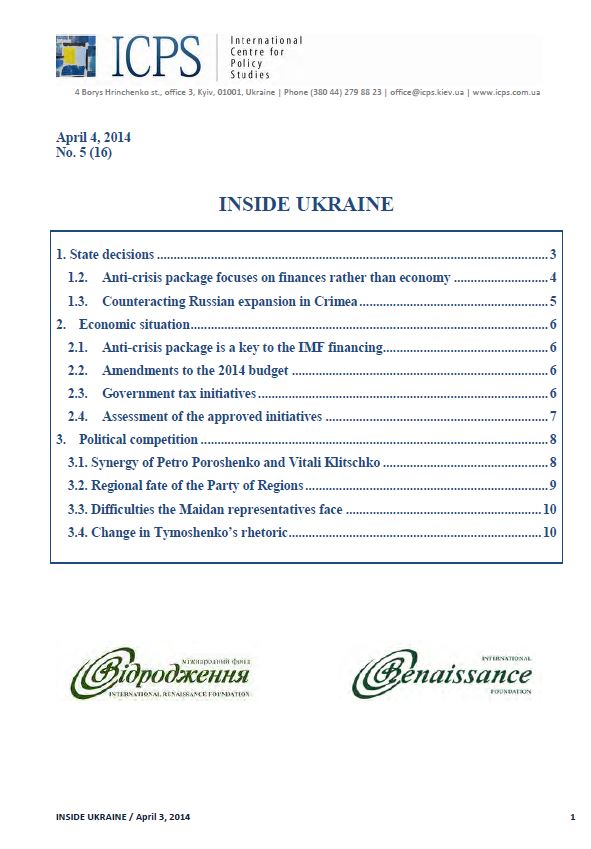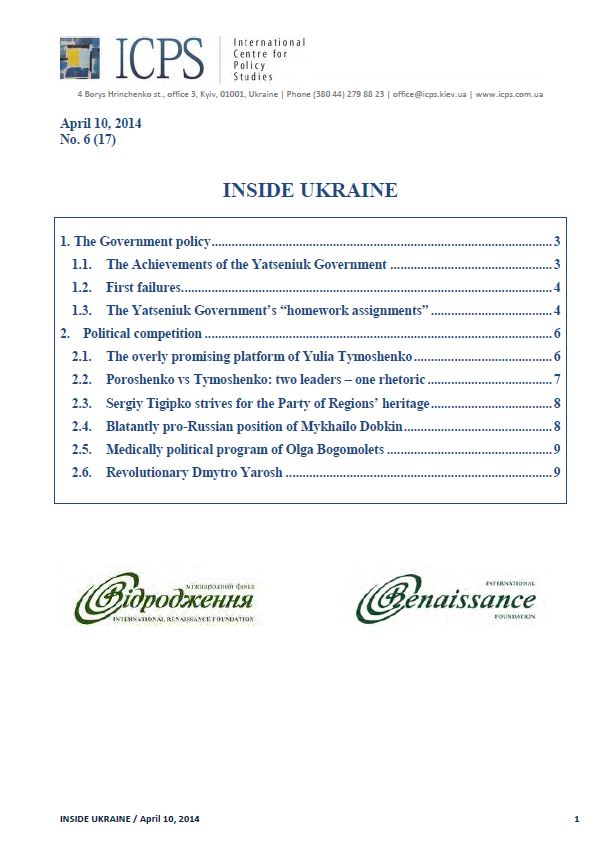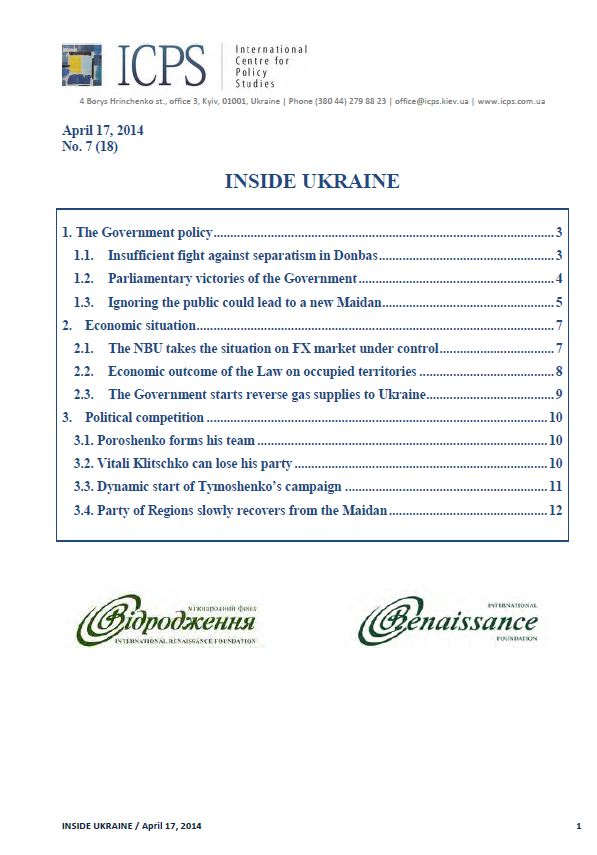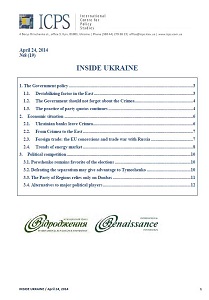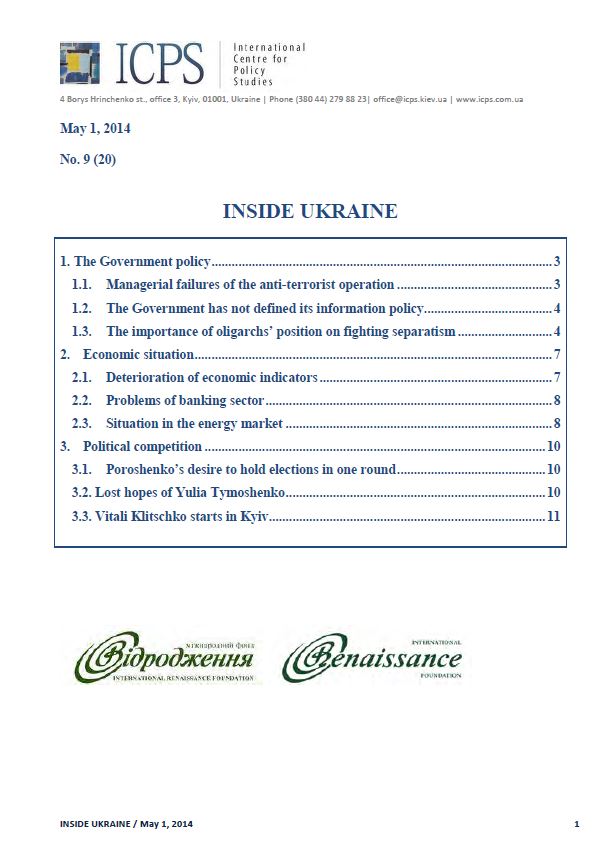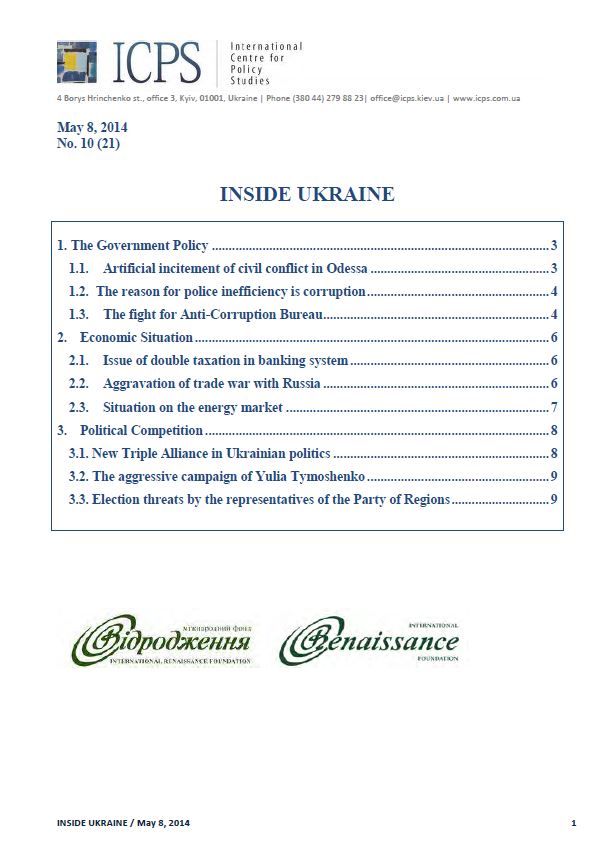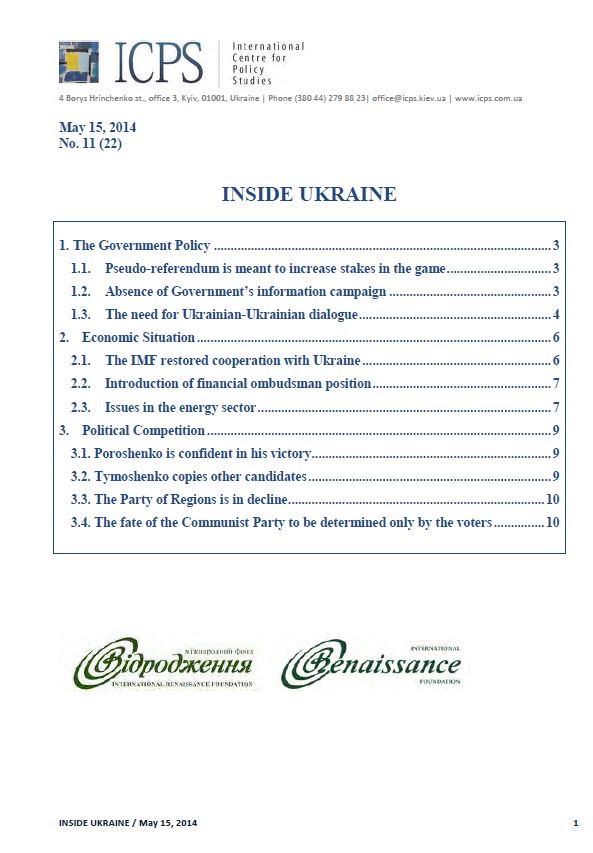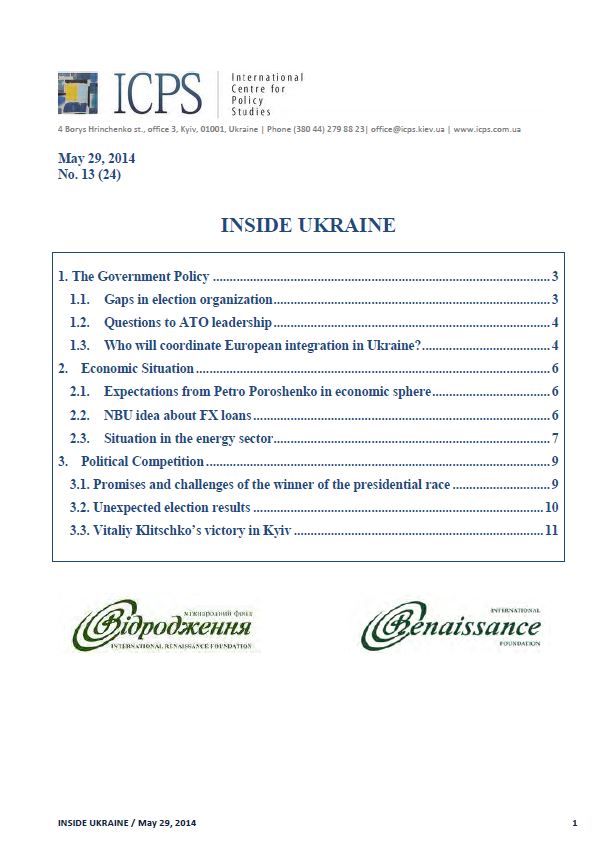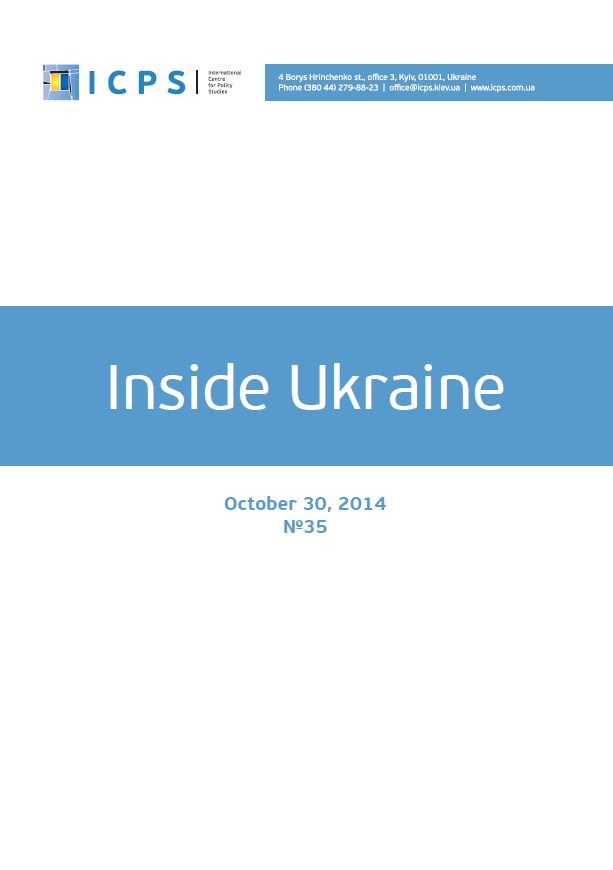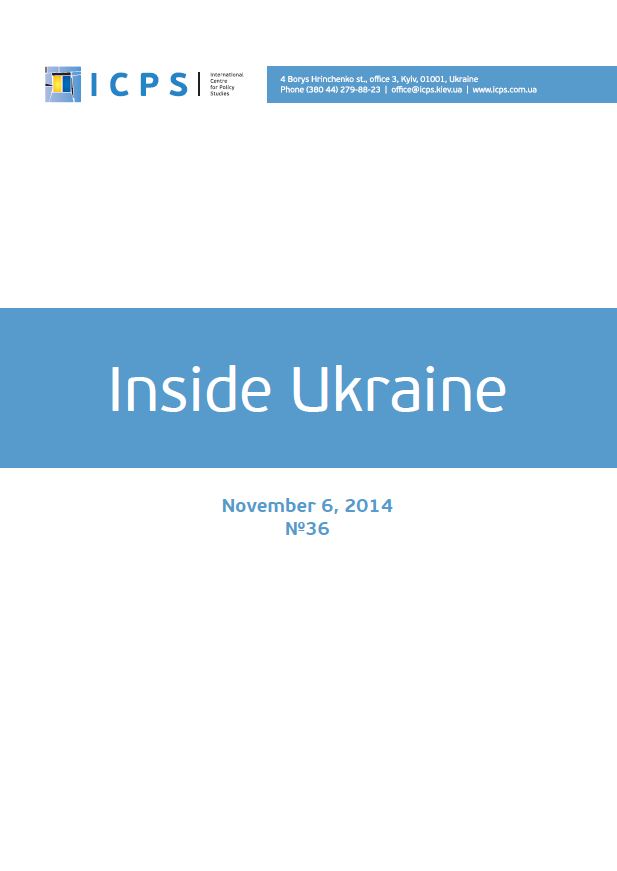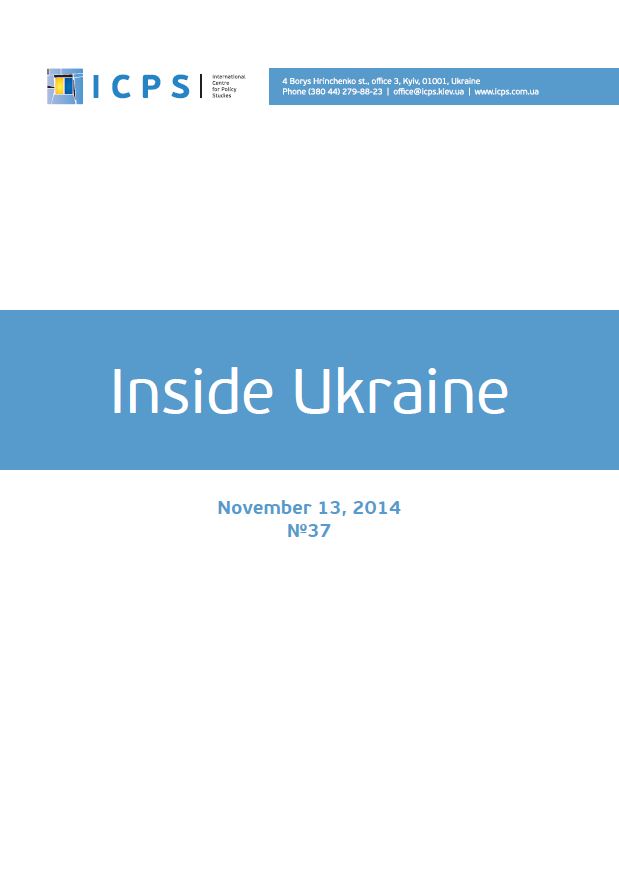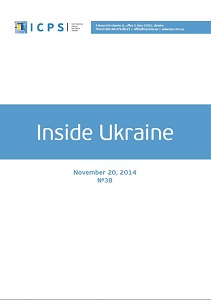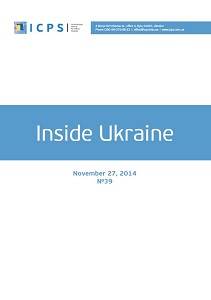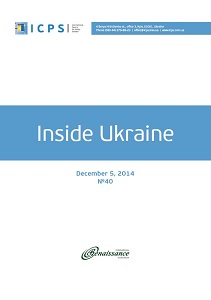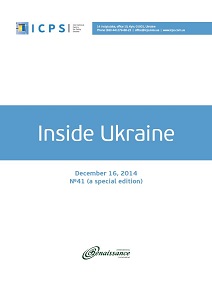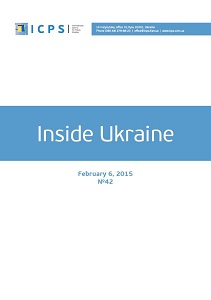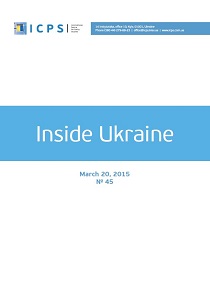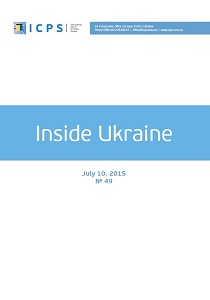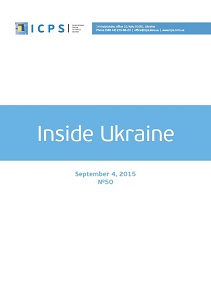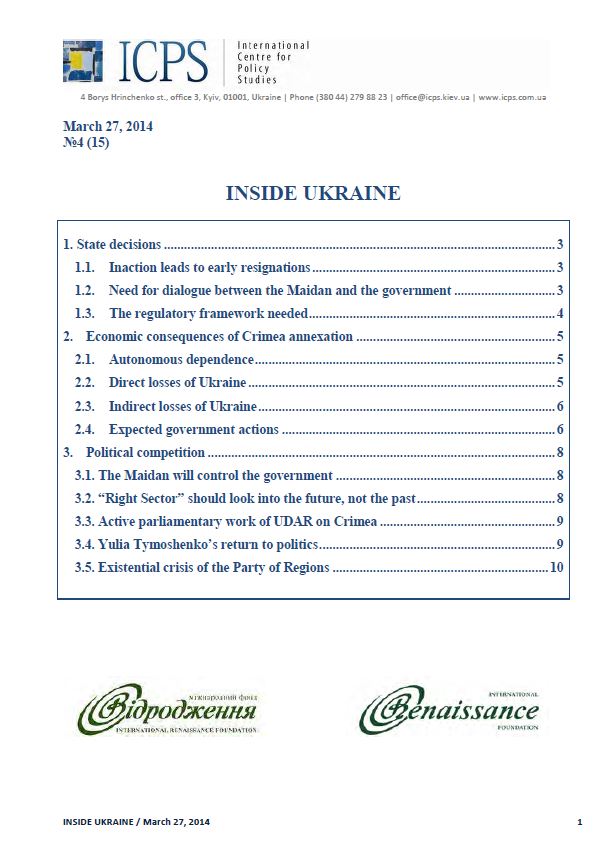
Inside Ukraine, № 2014 - 04 (15)
Inside Ukraine, № 2014 - 04 (15)
1. State decisions // 1.1. Inaction leads to early resignations // 1.2. Need for dialogue between the Maidan and the government // 1.3. The regulatory framework needed // 2. Economic consequences of Crimea annexation // 2.1. Autonomous dependence // 2.2. Direct losses of Ukraine // 2.3. Indirect losses of Ukraine // 2.4. Expected government actions // 3. Political competition // 3.1. The Maidan will control the government // 3.2. “Right Sector” should look into the future, not the past // 3.3. Active parliamentary work of UDAR on Crimea // 3.4. Yulia Tymoshenko’s return to politics // 3.5. Existential crisis of the Party of Regions
More...
